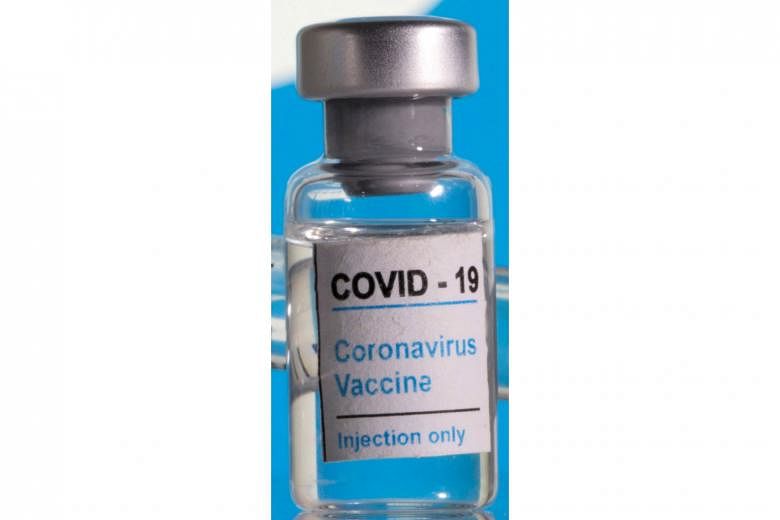WASHINGTON • A Group of Seven (G-7) plan to donate one billion Covid-19 vaccine doses to poorer countries will have limited impact because it includes some previous pledges, but it still offers a small lifeline to a global vaccine-buying system, experts said.
Leaders from the G-7 major economies announced the move last Friday. A United States initiative announced last Thursday to donate 500 million doses of the Pfizer vaccine is part of the pledge.
Many of the promised doses will flow through Covax, a global vaccine-buying system backed by the World Health Organisation and Gavi, the vaccine alliance.
The pledge does not represent entirely new resources, and the donation is far short of the five billion to six billion shots needed by poorer nations. Moreover, the plan does not address distribution gaps.
But experts said it is still a much-needed boost to Covax, which has so far distributed only 83 million shots worldwide.
Covax has struggled to secure deliveries as wealthy nations reserve enough shots to vaccinate their populations many times over.
"It's going to rescue Covax from its pretty dire predicament right now, so it's a very significant step," said Dr Stephen Morrison, director of the Global Health Policy Centre at the Centre for Strategic and International Studies, a think-tank.
Britain's 100 million dose pledge is "entirely new", a spokesman said. But the European Union's 100 million dose commitment was promised last month, and the US commitment partially replaces earlier promises to fund Covax directly.
The US has already donated US$2 billion (S$2.7 billion) to Covax, according to a White House official. In February, the Biden administration pledged US$2 billion more. But that second US$2 billion will now fund the purchase of the Pfizer doses, along with US$1.5 billion in additional funds, according to the official.
Even if the shots are acquired and shipped, they risk overwhelming developing countries' limited distribution infrastructure, especially if many are delivered together late this year.
The World Bank extended a US$12 billion line of credit for developing countries to build vaccine distribution infrastructure.
Some experts say wealthy countries should find a way to ship doses more quickly, especially as some near expiry in countries with high vaccination rates.
"When you just see the graph of the increase of vaccination coverage in wealthy countries and the accelerated pace at which that has been happening, and then when you look at the pace in developing countries, it's just so stark," said Dr Kate Elder, senior vaccines policy adviser at Medecins Sans Frontieres. "Doses are needed now."
REUTERS

